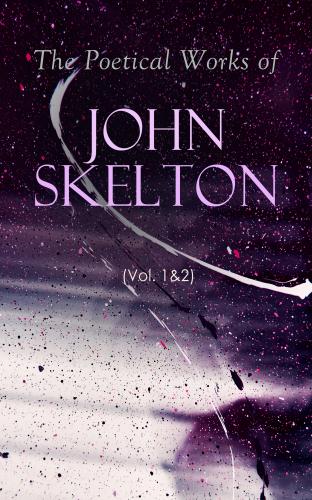Althoughe none of the Gospels
No mention maketh or tells,
We must beleue (what ells?)
Of things done by councells,
Wherein the high professours,
Apostlique successours,
Take holde to be possessours;
And some were made confessours;
Some of them were no startars,
But were made holi marters:
Yet plowmen, smythes, & cartars,
With such as be their hartars,
Will enterprise to taxe
Thes auncyent mens actes
And holy fathers factes.
Thoughe messe were made bi men,
As popes nyne or ten,
Or many more, what then?
Or not of Scripture grounded,
Is yt therfore confounded
To be a supersticion?
Nay, nay, they mysse the quission:
Make better inquyssicion;
Ye haue an euyll condicion
To make suche exposicion;
Ye thinke nothing but Scripture
Is only clene and pure;
Yes, yes, I you ensure,
The messe shalbe hir better,
As light as ye do set hir.
The Scripture hath nothing
Wherby profyte to bryng,
But a lytyll preaching,
With tattling and teaching;
And nothing can ye espie
Nor se with outwarde eye,
But must your ears applie
To learnyng inwardlye;
And who so it will folowe,
In goods though he may walow,
If Scripture once him swalowe,
She wyll vndo him holowe;
Wherfore no good mes singers
Will come within hir fyngers,
But are hir vnder styngers,
For she wolde fayne vndo
All such as lyueth so.
To the messe she is an enymye,
And wolde distroye hir vtterlye,
Wer not for sum that frendfully
In time of nede will stand hir by.
Yet is the messe and she as lyke
As a Christian to an heretike:
The messe hath holy vestures,
And many gay gestures,
And decked with clothe of golde,
And vessells many folde,
Right galaunt to beholde,
More then may well be tolde,
With basen, ewer, and towell,
And many a prety jwelle,
With goodly candellstyckes,
And many proper tryckys,
With cruetts gilt and chalys,
Wherat some men haue malice,
With sensers, and with pax,
And many other knackys,
With patent, and with corporas,
The fynest thing that euer was.
Alasse, is it not pitie
That men be no more wittye
But on the messe to iest,
Of all suche thinge the best?
For if she were supprest,
A pyn for all the rest.
…
A, good mestres Missa,
Shal ye go from vs thissa?
Wel, yet I muste ye kissa:
Alacke, for payne I pyssa,
To se the mone here issa,
Because ye muste departe!
It greueth many an herte
That ye should from them start:
But what then? tushe, a farte!
Sins other shifte is none,
But she must neades be gone,
Nowe let vs synge eche one,
Boeth Jak and Gyll and Jone,
Requiem eternam,
Lest penam sempiternam
For vitam supernam,
And vmbram infernam
For veram lucernam,
She chaunce to enherite,
According to hir merite.
Pro cuius memoria
Ye maye wel be soria;
Full smale maye be your gloria,
When ye shal heare thys storia;
Then wil ye crie and roria,
We shal se[151] hir no moria:
Et dicam vobis quare
She may no longer stare,
Nor here with you regnare,
But trudge ad vltra mare,
And after habitare
In regno Plutonico
Et euo acronyco,
Cum cetu Babilonico
Et cantu diabolico,
With pollers and piller[s],
And al hir well willers,
And ther to dwel euer:
And thus wil I leaue hir.”
From Phylogamus, 12mo, without date or printer’s name—of which the title-page and five leaves are preserved in a volume of Ballads and Fragments in the British Museum. The late Mr. Douce has written below the title-page “Probably by Skelton;” but it is certainly not his.
“Gyue place, ye poetes fine,
Bow doune now & encline;
For nowe yᵉ Muses nyne,
So sacred and diuine,
In Parnase holy hyll
Haue wrought theyr worthy wyll.
And by theyr goodly skyll
Vppon that myghty mountayne
